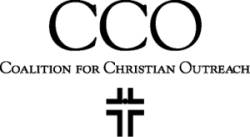In Yancey's article, A Quirky & Vibrant Mosaic, excerpted from the introduction of the forthcoming book, The Beliefnet Guide to Evangelical Christianity (by Wendy Murray Zoba) he writes,
“The British historian David Bebbington suggests this overall summary of evangelical distinctives:
- Conversionism: the belief that lives need to be transformed through a ‘born again’ experience.
- Activism: the expression of the gospel in missionary and social reform efforts.
- Biblicism: a particular regard for the Bible as the ultimate authority.
- Crucicentrism: a stress on the sacrifice of Jesus Christ on the Cross as making possible the redemption of humanity.”
"No one can write about evangelicalism without engaging in the difficult task of definition. Collins follows David Bebbington's four key characteristics, which when taken together help us recognize evangelicals: the normative value of Scripture, the necessity of conversion, the cruciality of the atoning work of Christ, and the imperitive of evangelism."
No wonder many evangelicals get upset when Christian leaders (especially those in "emerging" circles) begin to ask questions about these four things.
- When somebody suggests that we need to re-think how Scripture functions in the life of a believer, that's a threat to evangelicalism's Biblicism.
- When somebody suggests that conversion may be more of a process than an instant decision, that can be a threat to traditional evangelical ideas concerning Conversionism.
- When somebody suggests that penal substitutionary atonement is not the only way to describe the gospel, again we sense that threat--to Evangelicalism's Crucicentrism.
- And when somebody says that evangelism methods that have been used for the last century need to be reshaped, that is (can you guess?) yet another threat, this time to Evangelical Activism.











